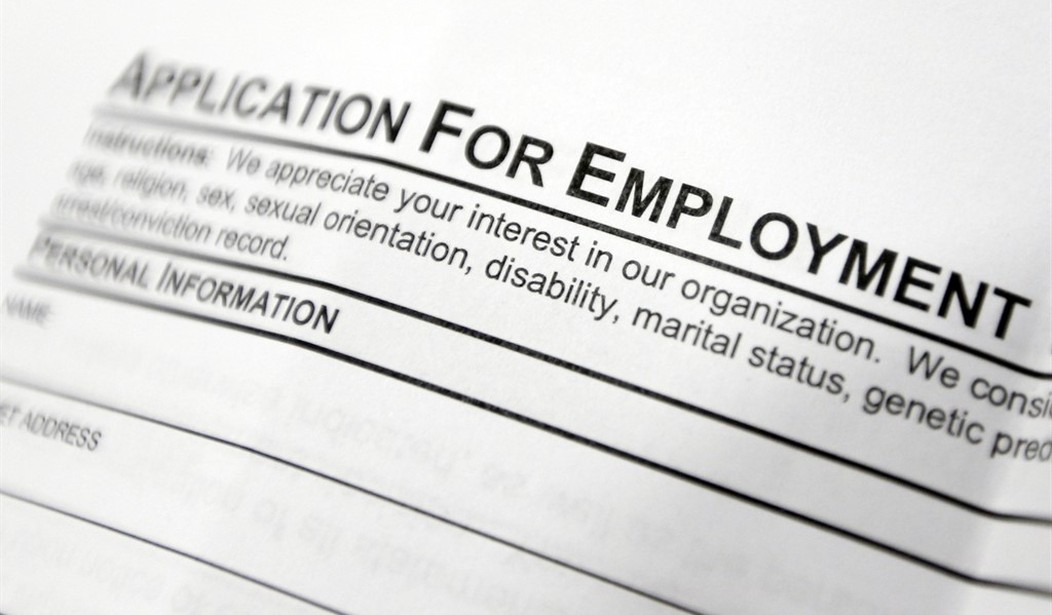Thorstein Veblen, the author of the classic The Theory of the Leisure Class, is probably shouting from somewhere in the great beyond, "Get me rewrite!" Yes, the U.S. now has an entirely new kind of leisure class, and it's like nothing Mr. Veblen ever saw in his day.
But we don't need Veblen to dissect the trend. Nicholas Eberstadt has got it covered. And it's not a pretty picture.
We're constantly being reminded that the official unemployment rate has come down to 4.9 percent, but that rosy figure doesn't begin to capture one of the most troubling features of our times: what Eberstadt calls the "collapse of work, over two generations, for American men."
"America is now home to a vast army of jobless men who are no longer even looking for work—roughly seven million of them age 25 to 54, the traditional prime of working life," Eberstadt, whose new book is Men Without Work: America's Invisible Crisis, wrote recently in the Wall Street Journal.
In the past fifty years, Eberstadt points out, the percentage of men aged twenty and older without paying jobs has risen from nineteen percent to thirty-two percent. Until World War II, Eberstadt note, there were two categories for able-bodied American men: working or being unemployed. Today there is a third way of life: having made a voluntary departure from the workforce, millions of American men today have no intention whatsoever of finding more work.
And what do most of these men do all day? Well, golly, what would you do if you didn't have to work? According to time-use diaries, the vast majority of nonworking men designate their diurnal activities as “socializing, relaxing and leisure.” As Eberstadt writes, this is a full-time occupation for many of our nonworking gents, taking up around 3,000 hours per annum and featuring many, many happy hours before TV or computer screens (for video games, apparently, not keeping up with current events).
Recommended
I know what you are thinking: "Socializing, relaxing and leisure"--aren't those activities that used to be the rewards for working hard and performing the socially-useful task of bringing up families and creating the next generation? Absolutely, but now it is a way of life for men who do neither of these things.
While hardly well off, these men have no fear of genuine destitution. We're handling that for them. Certainly there are a number of factors, including changes in manufacturing, that come into play with the rise of the unworking man, but one primary cause has to be that, through federal disability payments and means-tested benefit programs, affluent societies such as ours have opted to keep men who don't work from experiencing the sort of bone-crushing poverty that used to accompany joblessness. While nobody likes the idea of a Dickensian poor house, this has not been an entirely salubrious development.
Welfare irrevocably damaged the black family, and the collapse of the work ethic further heralds the destruction of the American family, across racial barriers. Nonworking men are less able to marry and form families, and, when they do father children, the children grow up in poverty and without the benefit of seeing a father who gets up every day and goes to work. Children are likely to see living on disability, Eberstadt has pointed out, as merely a "viable alternative lifestyle."
More than money is at stake here. Work is an enormous good in most of our lives, and the lack of work deprives us of the experience of becoming an adult. Work is so important to our dignity that the Catholic Church even has a saint for workers--and he's a biggie, none other than St. Joseph himself. Being habitually out of work means not having a sense of contributing to the world or building for a future (unless it is a future of intergenerational dependence).
Work is how we become good citizens. Indeed, Walter Williams has noted that a job teaches the young the habits of punctuality, respect, independence and other skills that they (particularly those in the inner-city) won’t acquire in their "rotten schools, their dysfunctional families or their crime-ridden neighborhoods. They must learn [these skills] on the job." If there is no job, they are not likely to acquire these skills.
Being habitually out of the job market when young has a profound influence on the rest of life. University of Chicago economist Erik Hurst has thought about what happens when the nonworking man in his twenties gets older. "[E]ventually these people will get older, of course, and many will have a spouse or kids," he said in an interview. "When that happens, their income requirements go up and they need jobs, but they probably haven’t been building the type of skills required to get a job. So that’s hard to understand. I have never written a paper before where people were myopic, but the behavior of a lot of people in their 20s now seems myopic."
We as a society are myopic if we don't address the issue of men without jobs. It is a complicated issue, involving not just federal assistance programs but our changing culture and expectations for what constitutes adulthood. Mostly we have to restore the notion that part of being an adult is earning your living. Refusing to confront this brings decay for society and untold waste for individual lives.
























Join the conversation as a VIP Member